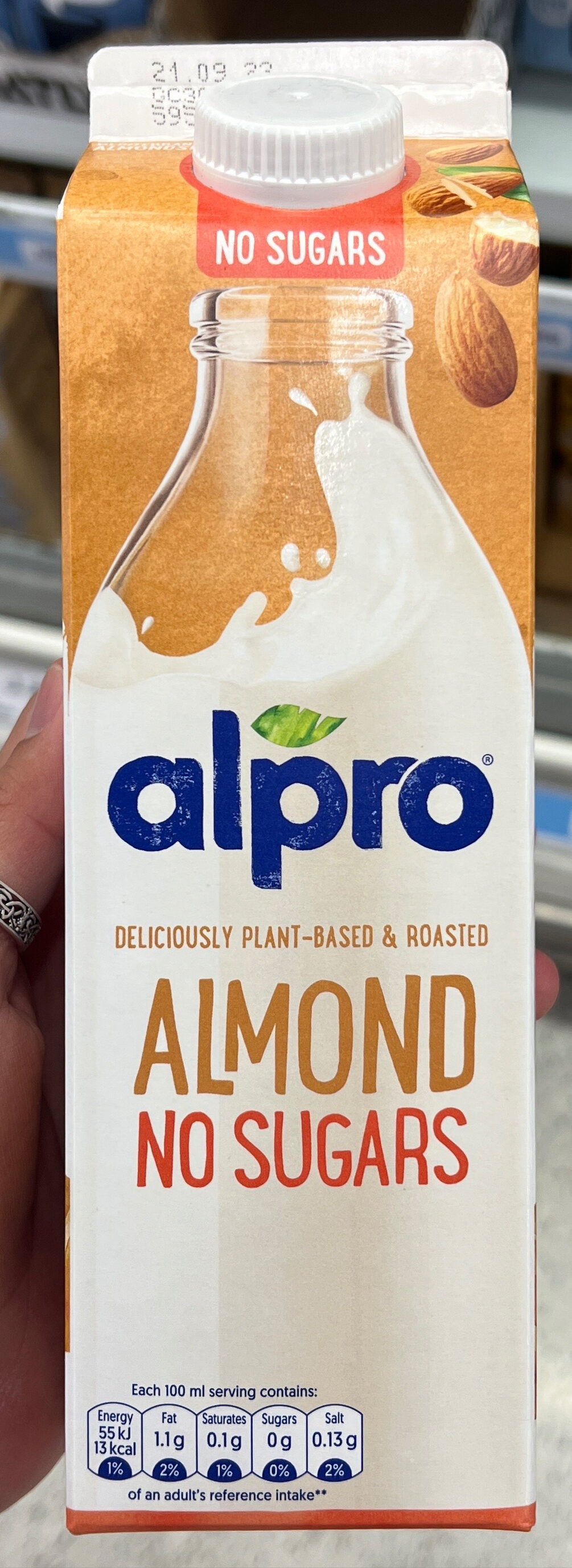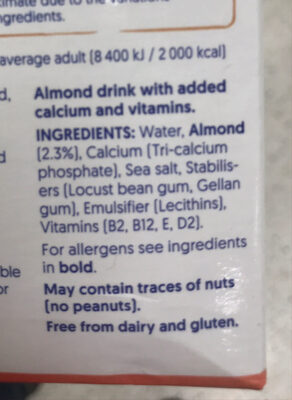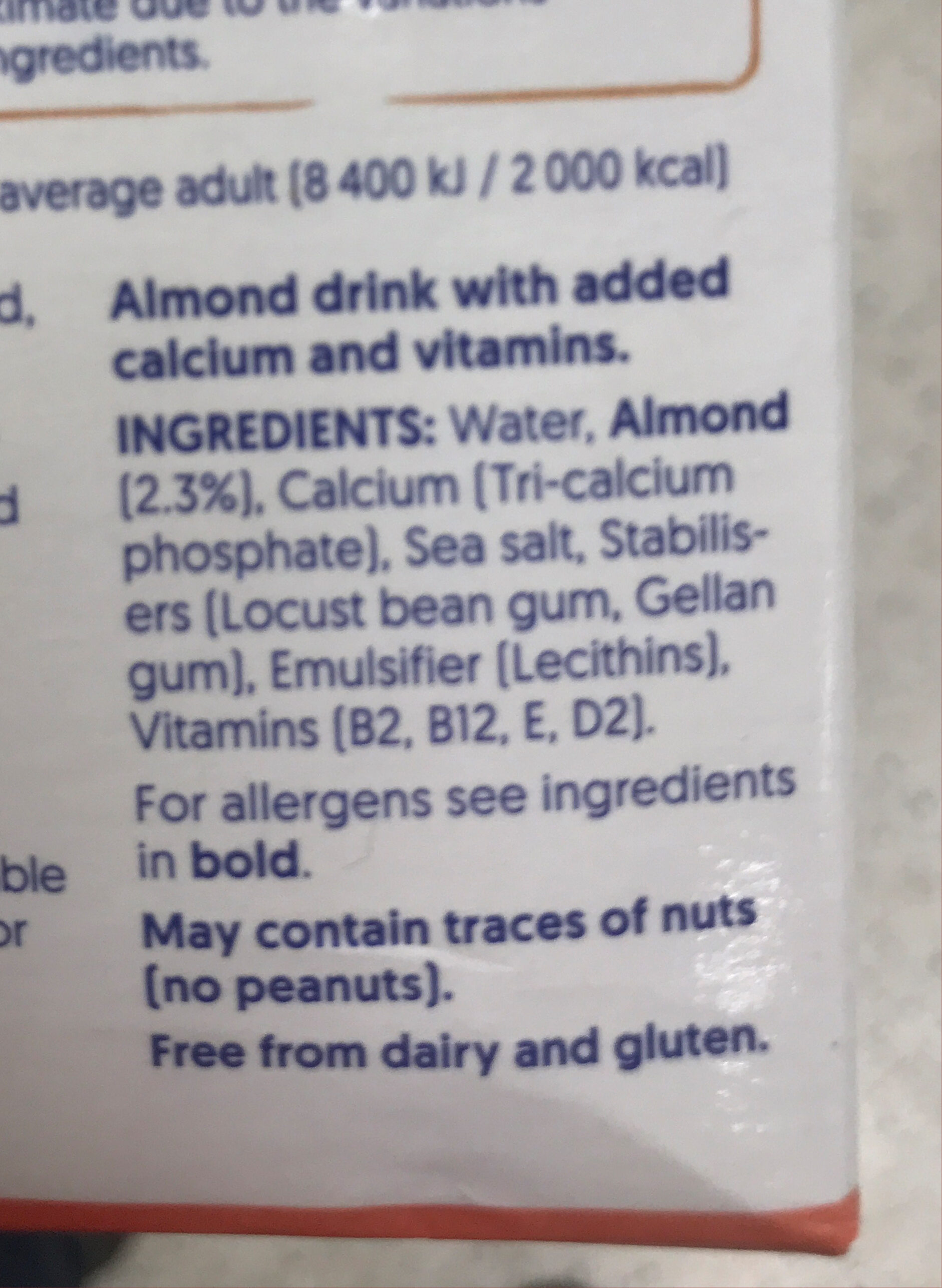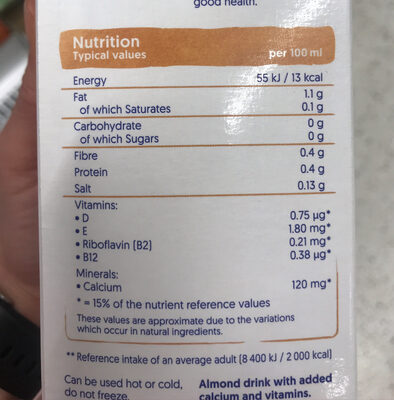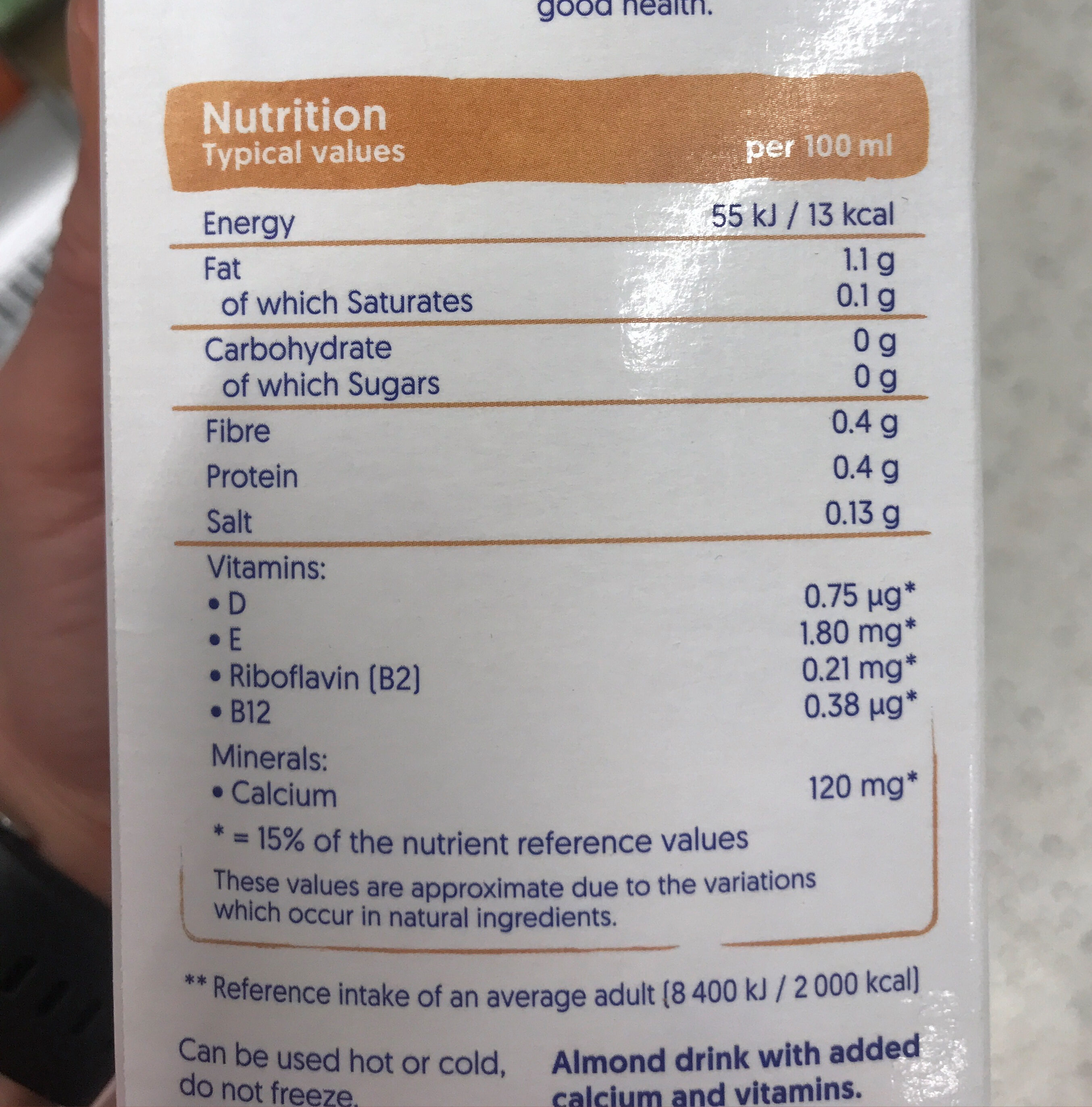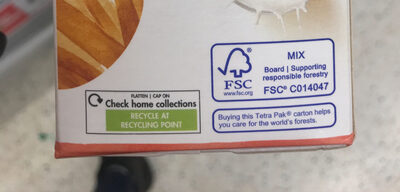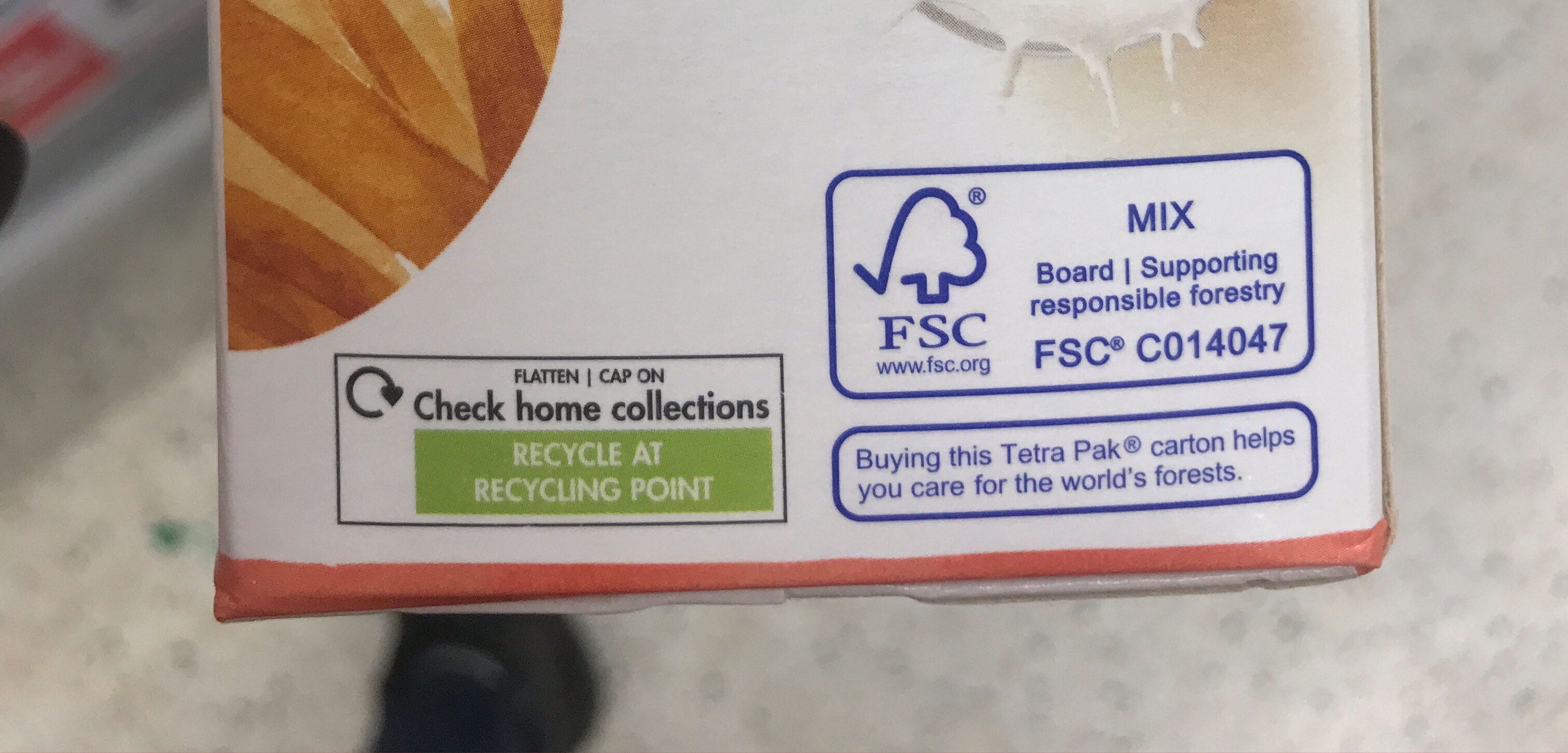Almond Unsweetened - Alpro - 1 l
This product page is not complete. You can help to complete it by editing it and adding more data from the photos we have, or by taking more photos using the app for Android or iPhone/iPad. Thank you!
×
Barcode: 5411188112778 (EAN / EAN-13)
Quantity: 1 l
Packaging: Composite material, Tetra Pak, Composite-carton, Unknown-carton
Brands: Alpro
Categories: Plant-based foods and beverages, Beverages, Plant-based foods, Dairy substitutes, Milk substitutes, Nuts and their products, Plant-based beverages, Plant-based milk alternatives, Nut-based drinks, Unsweetened beverages, Almond-based drinks
Labels, certifications, awards:
No gluten, Vegetarian, Vegan, FSC, FSC Mix, Green Dot, No milk, fr:Entrepreneurs + Engagés, Gruner-punkt

Traceability code: FSC-C014047
Link to the product page on the official site of the producer: https://www.alpro.com/de/produkte/drinks...
Stores: REWE
Countries where sold: Germany, Netherlands, United Kingdom
Matching with your preferences
Report a problem
Data sources
Product added on by date-limite-app
Last edit of product page on by bartolomeu.
Product page also edited by aleene, axvonder, bbredewold, inf, kiliweb, moon-rabbit, openfoodfacts-contributors, packbot, quentinbrd, ravine, roboto-app, scanbot, smias, smoothie-app, sne1991, swipe-studio, trouduf, twoflower, vaporous, yuka.CptaJtfQJOkrMMTK1Jo02SG7FMXCHdxZMVAHog, yuka.I41yINOaT5cdIvOI6LkE0jOQKO7qA98EGWY1og, yuka.V2ZnS1M3MGFpdndibnNRMzBCemIvOUV1blpxdmNUMlNOT0VYSVE9PQ.

